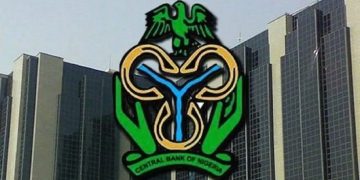Presco Plc reported robust year on year growth in the nine months to 30 September 2025, driven by strong topline expansion, markedly higher profitability and a bigger cash position. Revenue rose to ₦274.50 billion, pre tax profit reached ₦139.65 billion and profit after tax was ₦110.79 billion. The group declared an interim dividend of ₦10.00 per share. (Nigerian Stock Exchange)
Key reported numbers and year on year moves
- Reported group revenue for nine months ended 30 September 2025: ₦274.50 billion. Year on year change: +113.51 percent.
- Reported pre tax profit for the same period: ₦139.65 billion. Year on year change: +108.21 percent.
- Reported profit after tax for the period: ₦110.79 billion. Year on year change: +114.02 percent.
- Cash and bank balances at period end: ₦93.01 billion. Period end total assets: ₦612.82 billion. Retained earnings: ₦195.52 billion. Reported percentage changes are +196.19 percent for cash, +28.99 percent for total assets, and +54.28 percent for retained earnings versus prior comparative period.
- Interim dividend declared: ₦10.00 per share. Basic earnings per share implied by the reported profit after tax and the company share capital is ₦110.79 per share for the nine months.
Profitability analysis
The nine month reporting period shows exceptionally strong margins and profitability expansion.
Calculated profitability metrics based on published figures
- Pre tax profit margin. Pre tax profit divided by revenue equals 139.65 / 274.50, or about 50.9 percent. This is an unusually high pre tax margin for an agricultural processing and upstream oil palm related group and indicates either strong product pricing, favourable mix, improved yields, one off gains or a combination of these factors.
- Net profit margin. Profit after tax divided by revenue equals 110.79 / 274.50, or about 40.4 percent. This is a very strong net margin and indicates substantial operational leverage and/or large non operating gains recorded in the period.
- Return on assets. Profit after tax divided by total assets equals 110.79 / 612.82, or about 18.1 percent. This suggests the group converted asset base into a high level of after tax earnings during the period.
These margins imply that Presco delivered far stronger earnings relative to sales than in prior periods. The company attributes the performance to higher volumes and prices in key product lines, consolidation effects from its Ghanaian operations and improved cost efficiencies. The scale of the margin improvement warrants close attention by investors to determine the portion that is recurring operational improvement and the portion that reflects one off items, re measurements or favorable exchange rate movements. The notes to the interim financial statements should be consulted for the composition of other income, foreign exchange gains and any exceptional items.
Cash, liquidity and working capital
Presco’s reported cash and bank balance at period end is ₦93.01 billion. This is a very large cash position relative to the reported total assets of ₦612.82 billion and it increased substantially year on year. The company reported cash and equivalents of ₦93.01 billion compared with ₦31.40 billion in the prior year end, an increase of about 196 percent. Cash as a share of total assets is about 15.2 percent.
Implication
A large increase in cash balances improves short term liquidity and provides the group with the ability to fund working capital, capex and strategic investments without immediate reliance on external debt. The higher cash may reflect improved collections from trade receivables, asset disposals, strong operating cash flows or proceeds from financing transactions. The interim statement notes indicate increases in trade receivables, inventories in transit and new borrowings which should be read together with the cash movement to understand the full working capital story. (Nigerian Stock Exchange)
Balance sheet structure and leverage
From the interim notes, short term borrowings of ₦12.84 billion and long term borrowings of ₦146.95 billion were disclosed at 30 September 2025. Total borrowings therefore amount to approximately ₦159.79 billion. With total assets at ₦612.82 billion the simple debt to assets ratio is about 26.1 percent.
Earnings per share, dividend and payout
Presco’s reported profit after tax of ₦110.79 billion and an issued share capital of one billion ordinary shares imply basic earnings per share of ₦110.79 for the nine month period. Management declared a second interim dividend of ₦10.00 per share. The interim dividend as a percentage of nine month EPS gives a current payout ratio of approximately 9.0 percent. This is a conservative payout ratio which suggests management is retaining most earnings to support reinvestment, balance sheet strengthening and possible capex programs.
Drivers of performance and revenue expansion
Presco’s year on year revenue increase of 113.5 percent is material and demands scrutiny of drivers. The interim report and market commentary identify three primary contributors.
Consolidation and scope effects
Presco’s consolidation of subsidiaries in Ghana and other vertical integration initiatives has increased group revenue recognition. The full consolidation of the Ghanaian operations in this reporting period raised total group sales when compared to the prior period which had less scope.
Commodity prices and product mix
Stronger palm kernel and crude palm oil prices in global and regional markets improved revenue and margins. Higher prices combined with favourable product mix such as increased sales of higher margin refined and processed products drove much of the top line improvement.
Volume and operational improvements
The group reported higher volumes, improved extraction rates and better processing yields across its plantation and mills. Operational efficiency gains, lower per unit costs and improved logistics for intercompany transfers and exports also supported margin expansion.
Inventory, receivables and supply chain signals
The notes show that inventories grew materially during the period. Finished goods and goods in transit increased, reflecting either planned inventory build for export shipments or timing mismatches between production and offtake. Trade and other receivables also rose reflecting larger sales volumes and possibly longer credit terms to buyers in some markets. The combination implies the company is managing a bigger operating cycle as part of its growth push; investors should watch days inventory outstanding and days receivable metrics as they become available in subsequent reporting.
Operational constraints and risks
Supply chain and feedstock security remains a principal operational risk. Nigeria has a history of production and logistics disruptions that can affect feedstock availability and export logistics. The company has invested in significant crude and product storage and logistics to mitigate such risks. That said, continued maintenance of high utilisation rates across processing units is necessary to preserve margins. The RFCC unit and other complex processing equipment need stable run rates and efficient maintenance.
Macroeconomic and market risks also matter. Global refining and edible oil markets, currency movements, freight costs and regional demand will determine realised product prices and margins. Commodity cycles may moderate the extraordinary margins recorded in this nine month period.
Capital expenditure and strategic direction
Presco appears to be in a growth and consolidation phase with capex aimed at processing capacity, storage and product diversification into petrochemical feed stocks such as polypropylene and base oils. The rise in long term borrowings suggests active funding of investment projects. Management commentary in the interim statements highlights a strategy of strengthening downstream processing and expanding value added product lines which will lock in higher margins if demand for those lines proves sustainable























































